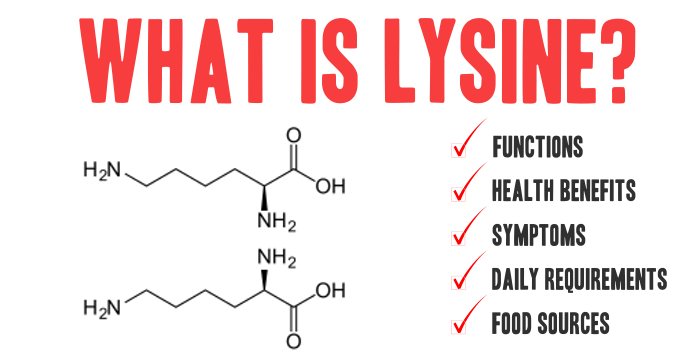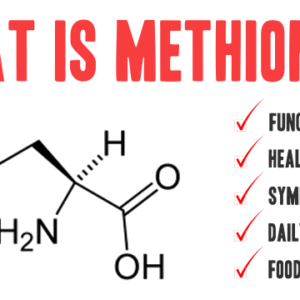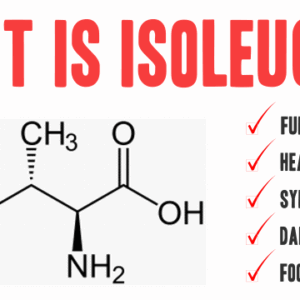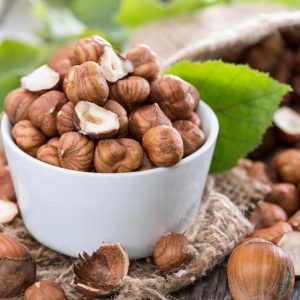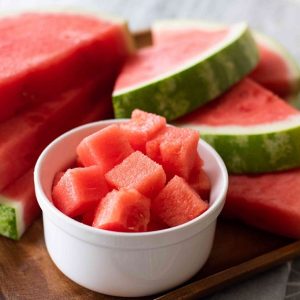What Is Lysine?
Lysine (L-lysine) is one of the nine essential amino acids—nutrients that the human body cannot produce and must obtain through dietary sources. It is a basic (positively charged) amino acid involved in protein synthesis, tissue repair, collagen formation, and calcium absorption.
Unlike branched-chain amino acids, lysine plays a central role in immunity, connective tissue health, and even the inhibition of certain viral infections, particularly the herpes simplex virus (HSV).
Functions of Lysine in the Body
1. Supports Collagen and Tissue Repair
Lysine is necessary for the formation of collagen, the structural protein that makes up skin, tendons, ligaments, and cartilage. It works synergistically with vitamin C to support wound healing and connective tissue strength (Reddy & Enwemeka, 1996).
2. Enhances Calcium Absorption and Bone Health
Lysine promotes intestinal absorption of calcium and reduces its excretion through urine, which may help support bone density and prevent osteoporosis (Civitelli et al., 1992).
3. Boosts Immune Function
Lysine contributes to the production of antibodies and supports the activity of immune cells, including macrophages and lymphocytes. It helps defend against infections and may reduce the duration and frequency of cold sores caused by HSV-1 (Griffith et al., 1987).
4. Assists in Hormone and Enzyme Production
Lysine is involved in synthesizing hormones, enzymes, and antibodies. It also participates in the body’s nitrogen balance and supports the structure of blood vessels and organ tissues.
5. Promotes Muscle Growth and Recovery
As an amino acid involved in protein synthesis, lysine supports muscle repair after injury or exercise. It is essential for children’s growth and maintaining lean muscle mass in adults.
Benefits of Lysine
Promotes collagen production for skin, bones, and joints
Aids in calcium absorption and bone strength
Strengthens the immune system and may suppress HSV outbreaks
Supports muscle growth and tissue repair
Helps manage anxiety by interacting with serotonin receptors (Smriga et al., 2004)
Lysine Deficiency: Signs and Risk Factors
Who Is at Risk?
Vegans/vegetarians consuming low-lysine grains (e.g., corn, wheat) without balancing legumes
People with poor protein intake
Individuals with malabsorption syndromes
Those under chronic stress or injury
Deficiency Symptoms May Include:
Fatigue or irritability
Poor appetite
Nausea, dizziness
Delayed wound healing
Hair loss
Anemia
Weakened immunity
Increased frequency of cold sores (HSV outbreaks)
Daily Lysine Requirements
According to the World Health Organization (WHO):
Adults: 30 mg of lysine per kg of body weight per day
For a 70 kg adult: ~2,100 mg/day
Athletes, children, pregnant and breastfeeding individuals may require higher amounts.
Top Food Sources of Lysine
Lysine is abundant in animal proteins and select plant-based foods. Unlike some other essential amino acids, lysine tends to be low in cereal grains, making it a limiting amino acid in vegan diets if not planned carefully.
High-Lysine Animal-Based Foods:
| Food | Serving | Lysine Content |
|---|---|---|
| Chicken breast | 3 oz (85g) | ~2,500 mg |
| Eggs | 2 large | ~900 mg |
| Salmon | 3 oz | ~2,200 mg |
| Greek yogurt | 1 cup | ~1,500 mg |
| Parmesan cheese | 1 oz | ~750 mg |
High-Lysine Plant-Based Foods:
| Food | Serving | Lysine Content |
|---|---|---|
| Lentils (cooked) | 1 cup | ~1,250 mg |
| Quinoa (cooked) | 1 cup | ~450 mg |
| Tofu | ½ cup | ~1,100 mg |
| Black beans | 1 cup | ~1,200 mg |
| Pumpkin seeds | 1 oz | ~400 mg |
To optimize lysine intake on a plant-based diet, combine legumes, tofu, soy, and quinoa regularly.
Lysine Supplementation
L-lysine supplements are used for:
Preventing and treating cold sores (HSV-1/HSV-2)
Supporting recovery and wound healing
Enhancing muscle repair in athletes
Managing anxiety and stress in select populations
Typical Dosage:
General immune and recovery support: 500–1,000 mg daily
HSV suppression: 1,000–3,000 mg per day (divided doses) (Griffith et al., 1987)
Safety:
Lysine is considered safe for most people. High doses (over 3,000 mg/day) should only be used under medical supervision. Rare side effects include nausea, stomach pain, or diarrhea.
Research and Clinical Applications
Herpes Virus Suppression: Studies show L-lysine can reduce the frequency, duration, and severity of herpes simplex virus outbreaks, particularly when taken preventatively (Griffith et al., 1987).
Bone Health: Lysine improves calcium retention and may enhance bone strength in postmenopausal women (Civitelli et al., 1992).
Anxiety Modulation: Lysine interacts with serotonin receptors and may help lower cortisol and reduce symptoms of stress and anxiety (Smriga et al., 2004).
Conclusion
Lysine is a critical building block of proteins and connective tissues, essential for immune strength, bone health, and tissue repair. It is particularly useful in supporting muscle recovery, managing herpes outbreaks, and even reducing stress levels.
A diet rich in high-quality proteins, or supplementation when needed, can help ensure your lysine needs are met—whether for health maintenance, recovery, or optimal performance.
References
Griffith, R. S., Norins, A. L., & Kagan, C. (1987). A multicenter study of lysine therapy in herpes simplex infection. Dermatologica, 175(4), 183–190.
Civitelli, R., et al. (1992). Lysine and arginine modulate intestinal calcium absorption in humans. Nutrition, 8(6), 400–405.
Reddy, G. K., & Enwemeka, C. S. (1996). A simplified method for the analysis of hydroxyproline in biological tissues. Clinical Biochemistry, 29(3), 225–229.
Smriga, M., et al. (2004). Lysine fortification reduces anxiety and stress in a randomized, double-blind, placebo-controlled study in humans. Proceedings of the National Academy of Sciences, 101(22), 8285–8288.

